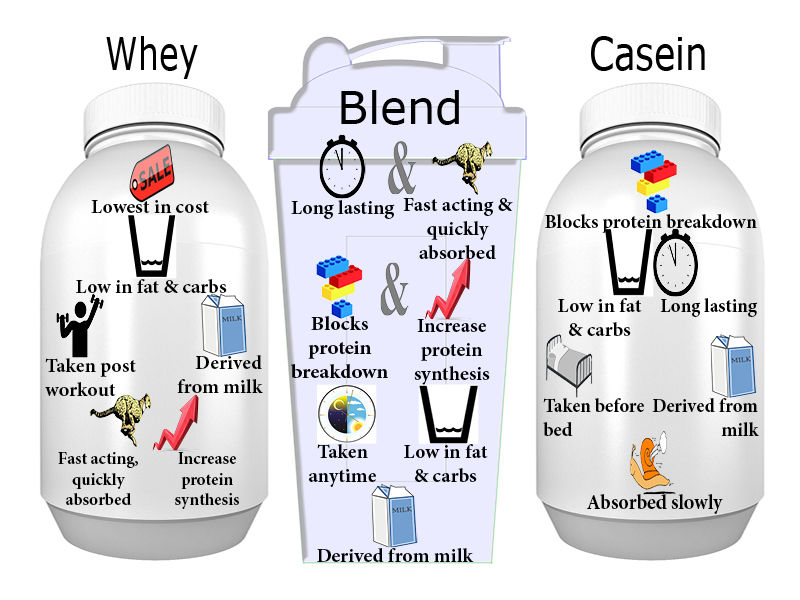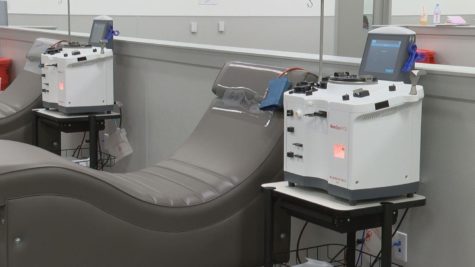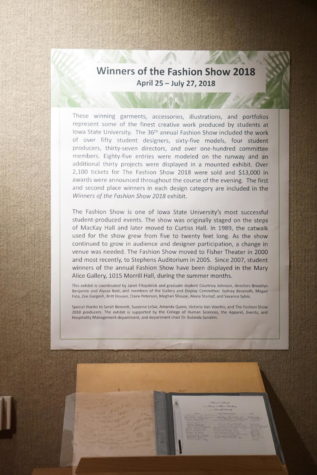Powder energy booms by the billions
Taylor Mankle/Iowa State Daily
Different types of supplements play unique roles in promoting nutrition and benefiting fitness. Know what each type does, when each should be taken and how each is derived.
November 5, 2014
Other than making quite a dent in one’s wallet, navigating the world of supplements can be both confusing and frustrating for the average gym rat. Though confusing, supplements can provide substantial benefits and, according to Ian Naber, owner of AI Supplements, “fill in those gaps” of nutrition users are looking for.
“Everyone needs their own plan and program, supplement usage depends on an individual’s goals and can’t be generalized,” said Doug McConnaha, owner of Park Avenue Fitness and distributor for over 60 supplement companies.
According to the Centers for Disease Control and Prevention, more than half of US adults use dietary supplements on a daily basis and the growing need has metamorphosed itself into a $27 billion dollar industry.
Pre-Workout Supplements
Pre-workout supplements usually come in powder form and are used to provide a boost in energy and what is commonly known as “a pump.” Pre-workouts benefit anyone looking to increase energy as well as metabolism. But those looking to increase muscle mass may want to avoid pre-workouts that may result in weight loss and suppressed appetite.
Not all pre-workouts contain the same ingredients, but “there is one for everything and everyone,” said McConnaha.
Both McConnaha and Naber suggest cycling off every couple of months and not relying solely on a pre-workout to make it through.
Protein Powders
“I am a firm believer in protein supplements, nutrition is at least 75% of everything and diet comes first. Protein powders are a great way to get that protein that’s missing from your diet,” said McConnaha.
There are many different types of proteins powders, each with their own benefits and downfalls. The three most common protein types are whey, casein, and blends.
- Whey protein is a derivative of milk that is low in fat and carbohydrates, and it is perfect as a post-workout supplement due to it’s quick digestion and fast absorption rate to promote muscle growth. Therefore, it is not suggested as a meal replacement as it may not satiate for long.
- Casein protein, also derived from milk, has a slow absorption rate which makes it a great meal replacement option. For those wanting to increase mass, it is suggested to drink casein protein before bed to leave the body in an anabolic state throughout the night.
- Protein blends are the best of both worlds: fast absorbing and long lasting. Blends can be consumed anytime throughout the day and also before bed.
Whatever protein one chooses, they should make sure it is a complete protein containing vitamins, amino acids and BCAAs (branched amino acids).
Post-Workout or Recovery Supplements
After a grueling workout muscles are fatigued and in need of recovery. Anyone experiencing muscle fatigue, soreness or looking for a quicker recovery can benefit from post-workout supplements. The two most commonly used are BCAAs and Amino Acids.
- BCAAs are high in Leucine and aid in muscle repair, build and recovery.
- Amino acid supplements can be consumed throughout the day and promote muscle synthesis and recovery.
“I like to drink amino acids throughout the day, just to keep my metabolism going,” said McConnaha.
In their entirety, supplements can be a great addition to an already active and healthy lifestyle. Specific supplement regimens are different for each individual and vary based on physical activity, goals and body type.
“Do your own research, don’t rely solely on anyone because most people aren’t experts,” suggested Naber.
Doing research before stepping into the nearest GNC or Complete Nutrition is the best way to benefit from the billion dollar industry and avoid potential persuasion.

















